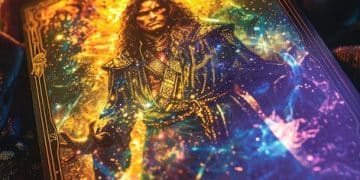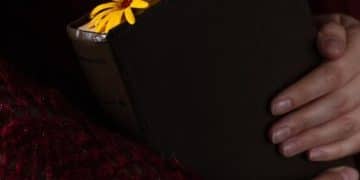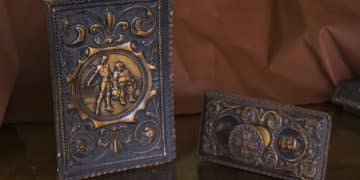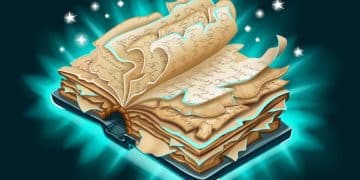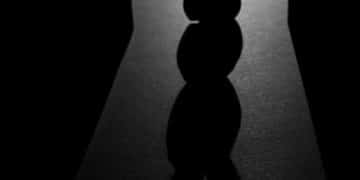The Influence of Aleister Crowley: Books That Shaped Modern Occultism
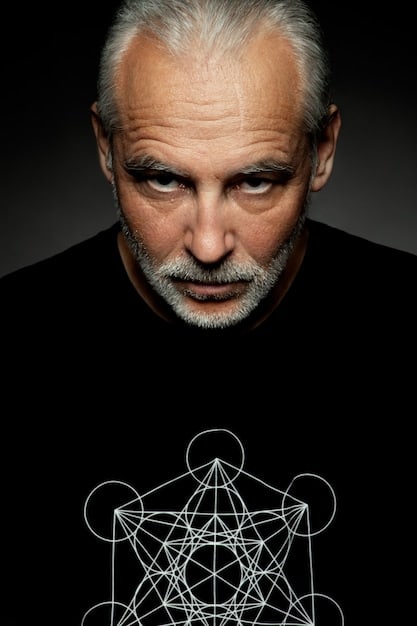
The Influence of Aleister Crowley: A Review of Books Analyzing His Impact on Modern Occultism explores the profound and often controversial legacy of Aleister Crowley on modern occult practices, examining key texts that have interpreted, expanded upon, and critiqued his teachings.
Delving into the world of occultism often leads one to the doorstep of Aleister Crowley, a figure whose influence permeates many contemporary magical practices. This article, The Influence of Aleister Crowley: A Review of Books Analyzing His Impact on Modern Occultism, examines the key books that dissect and analyze his enduring legacy.
Understanding Aleister Crowley: The Foundational Texts
To truly understand Crowley’s influence, it’s crucial to first engage with his own writings. These texts lay the groundwork for his unique blend of magic, philosophy, and personal expression.
The Book of the Law: A Revolutionary Revelation
Central to Crowley’s system is The Book of the Law, a text dictated to him in Cairo in 1904. It proclaims the arrival of the New Aeon and the Law of Thelema: “Do what thou wilt shall be the whole of the Law.”
- The text’s poetic and cryptic nature often requires careful interpretation.
- It introduces key concepts such as Nuit, Hadit, and Ra-Hoor-Khuit.
- The book’s central message promotes individual will and self-discovery.
Magick in Theory and Practice: A Comprehensive Guide
This expansive volume serves as a practical handbook for Crowley’s magical system. It covers a wide range of topics, from ritual techniques to esoteric philosophy.
Understanding these foundational texts is essential before exploring secondary analyses and interpretations of Crowley’s work.

Biographies and Critical Analyses of Crowley’s Life
Understanding the life of Aleister Crowley himself is key to understanding how he found himself at the heart of occultism. It explores the details of his upbringing alongside the unique experiences later in life that led to the philosophies he established.
Symonds’ The Great Beast: The Life and Magick of Aleister Crowley
One of the earliest and most widely read biographies, Symonds’ work offers a detailed account of Crowley’s life. It explores the life events that shaped the man who came to be called “the wickedest man in the world.”
- Highlights Crowley’s aristocratic background and rebellious youth.
- Details his involvement with the Hermetic Order of the Golden Dawn.
- Explores his travels and magical experiments around the world.
Kaczynski’s Perdurabo: The Life of Aleister Crowley
This biography offers a more nuanced and scholarly perspective on Crowley’s life, drawing on previously unavailable sources.
These biographies help to contextualize Crowley’s magical theories and practices within the framework of his personal experiences.
Exploring Crowley’s Influence on Modern Wicca
Crowley’s influence stretches into many areas of modern Occultism; Modern Wicca is one area that has greatly taken some influence, although most Wiccans may not readily recognize it.
The Influence of Gerald Gardner
Gerald Gardner is known as the founder of modern Wicca, and some believe that he was influenced by Crowley, having associated with some of the same occult circles in England.
- Gardner’s rituals include similar language to Crowley’s.
- Both Gardner and Crowley put significance on the idea of sexual magic.
- Gardner and Crowley both put emphasis on personal experience.
Doreen Valiente’s Contributions
Doreen Valiente played a crucial role in shaping the early traditions of Wicca. In doing so, she may have used some Thelemic ideas. She was influenced by similar literary and occult sources as Crowley.
These works reveal the subtle yet significant ways in which Crowley’s ideas have shaped the landscape of modern Paganism.

Crowley’s Impact on Chaos Magic and Contemporary Occultism
Crowley’s emphasis on personal experience and experimentation has profoundly influenced the development of Chaos Magic. It emphasizes that anything can be used if you bring the correct intent and beliefs to the ritual.
Carroll’s Liber Null & Psychonaut: A Chaos Magic Bible
This foundational text of Chaos Magic draws heavily on Crowley’s ideas, particularly his emphasis on individual will and the practical application of magical techniques.
Hine’s Prime Chaos: Further Exploration
Phil Hine is one leading influence in Chaos Magic, and this book is based on many of Crowley’s concepts.
These books demonstrate how Crowley’s principles have been adapted and reinterpreted by contemporary occultists seeking to push the boundaries of magical practice.
Thelema Beyond Crowley: Expanding the Tradition
Thelema, the spiritual and ethical system at the heart of Crowley’s work, has continued to evolve and diversify since his death. Many contemporary Thelemites often create their own versions of Thelema, based on their own understanding of the texts.
Evola’s Interpretation
Julius Evola was an Italian philosopher and esotericist. While not a Thelemite, he was influenced by Crowley’s teachings, and sought to reshape Thelema.
- Some see his rewriting of Thelema as a form of Fascist ideology.
- Crowley himself was suspicious of Evola’s views and aims.
- Evola also took some influence from Buddhism and other esoteric teachings.
Modern Thelemic Voices and Perspectives
Many books explore contempoary perspectives on Thelema. These include essays by moderns on the subject, but also reprints of older works.
These works showcase the ongoing evolution of Thelema as a living and dynamic spiritual tradition.
Criticisms and Controversies Surrounding Crowley’s Legacy
Crowley’s controversial lifestyle choices and views have often resulted in criticism and debate. Many detractors question his methods, although many modern occultists find his methods effective and logical.
Sutin’s _Do What Thou Wilt_: A Critical Perspective
This biography offers a more critical perspective on Crowley’s life and work, emphasizing the darker aspects of his personality and the potential dangers of his magical system.
Addressing Misconceptions and Misrepresentations
Many books seek to address the misconceptions. They explore the misconceptions that often surround Crowley’s legacy.
These books encourage a balanced and informed understanding of Crowley’s complex and often contradictory legacy.
| Key Aspect | Brief Description |
|---|---|
| 📜 The Book of the Law | Central text proclaiming the Law of Thelema: “Do what thou wilt.” |
| ✨ Magick in Theory and Practice | Comprehensive guide to Crowley’s magical system and philosophy. |
| 🧙 Wiccan Influence | Gerald Gardner, founder of Wicca, was likely influenced by Crowley’s work. |
| 🌀 Chaos Magic | Crowley influenced chaos magic, with Carroll’s ‘Liber Null’ expanding on his ideas. |
Frequently Asked Questions
▼
Aleister Crowley (1875-1947) was an English occultist, ceremonial magician, poet, painter, novelist, and mountaineer. He founded the religion and philosophy known as Thelema, and is considered one of the most influential occultists of the 20th century.
▼
Thelema is a spiritual and ethical system developed by Aleister Crowley in the early 1900s. It centers around the “Law of Thelema,” which states, “Do what thou wilt shall be the whole of the Law.” It emphasizes individual will and self-discovery.
▼
Magick in Theory and Practice serves as a comprehensive guide for Crowley’s magical system. It covers a wide array of topics, including ritual techniques, meditation practices, divination methods, and philosophical concepts related to occultism.
▼
Crowley influenced Wicca through individuals like Gerald Gardner, the founder of modern Wicca, who was associated with Crowley and incorporated elements of Thelemic philosophy and magical practices into Wiccan rituals.
▼
Crowley influenced Chaos Magic by emphasizing the importance of individual experience and experimentation, which aligned with Chaos Magic’s rejection of rigid dogma and its focus on achieving results through personalized magical techniques and belief systems.
Conclusion
The books analyzing The Influence of Aleister Crowley: A Review of Books Analyzing His Impact on Modern Occultism, as shown, present a multifaceted portrait of a man whose ideas continue to shape contemporary esoteric thought. Whether one approaches his work with reverence, skepticism, or a mixture of both, there is no denying the enduring power of his vision.
